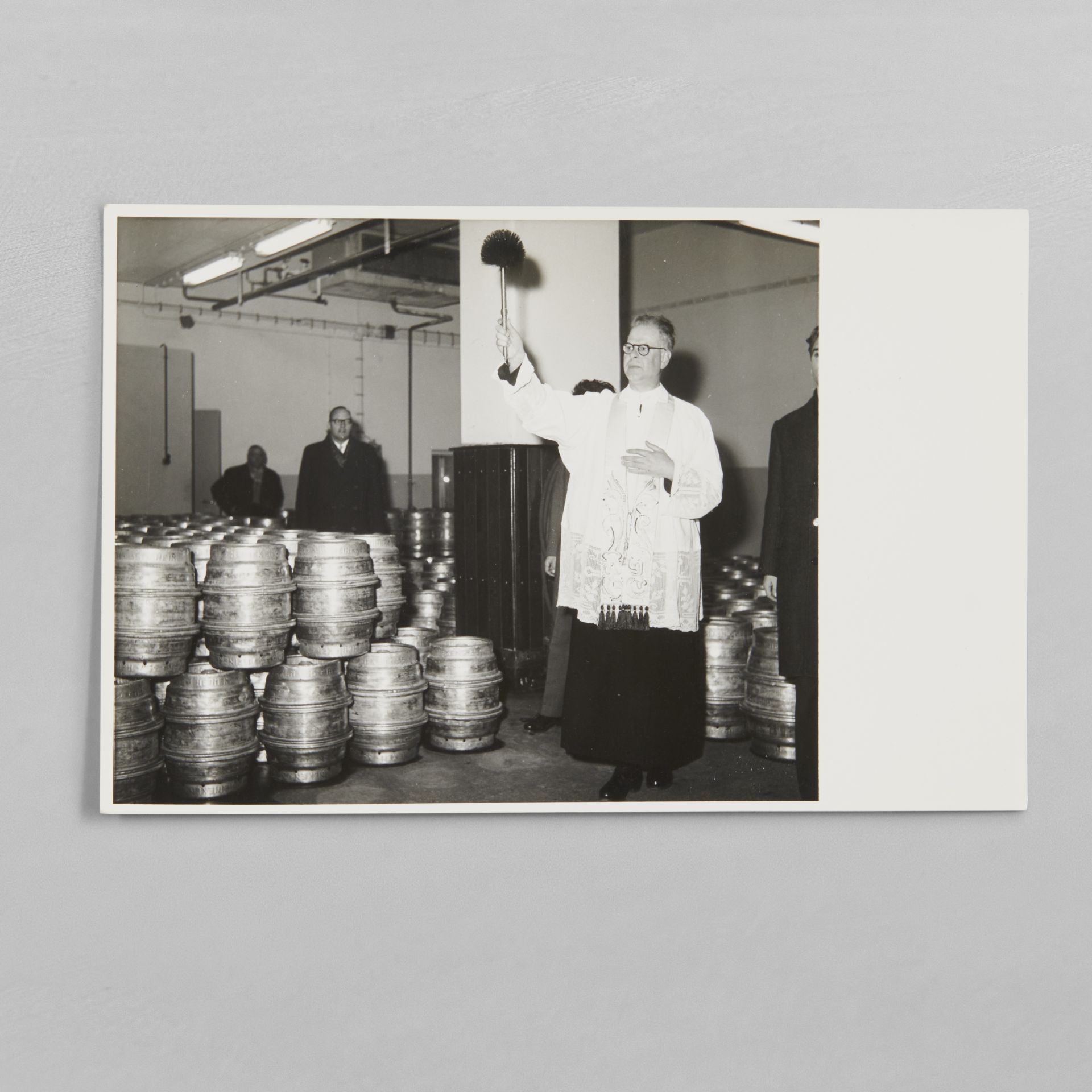INFO
Blessing of the Heineken Brewery in Den Bosch
1958
black-and-white photograph
h 17.8 x w 23.8 cm

The blessing of the beer
The Heineken Brewery in Den Bosch, which opened in 1958 , is located in the middle of the Catholic province of Noord Brabant. The Catholic Church, led by the Pope in Rome, is a continuation of the medieval Christian Church in the Netherlands.
The faith of Catholic Christians revolves around the celebration of Mass, in which Christ’s death on the cross is commemorated. During a set formula of Latin texts, chants and rituals, performed by a priest, bread and wine are transformed into the body and blood of Christ. In addition, Catholics strongly value rituals in their daily lives. For example, the blessing, in which a Catholic clergyman sprinkles people, animals or objects with holy water – sanctified water – to implore divine prosperity.
Blessing
In the southern Netherlands and in Flanders, where Catholicism survived the Reformation, no one is surprised when a pastor appears at the start of a bicycle race with a holy water brush. After saying a prayer of supplication and thanks, he then sprinkles the riders and their bicycles with holy water. The pastor also gives each blessed person a mission statement. For example, to ensure the safety of others in traffic. In this same tradition, farmers also have their cows blessed and vacationers even have their cars blessed.
Brewery blessing
It was no different at the opening of the Heineken Brewery in Den Bosch. In the photograph Father Martin van der Drift (1912-2003) blesses a stack of metal beer kegs on 12 April 1958. Needless to say, prosperity was implored for this enormous project, which would unite and increase the beer production of the breweries in Amsterdam and Rotterdam. The Den Bosch brewhouse was built according to the latest standards, with stainless steel kettles instead of copper ones. Also, the brewing process was largely automated and powered through a single electrical system.
Unfortunately, the blessing offered no guarantee for the future: the modern brew kettles turned out to have construction flaws. With the first expansion in 1960, traditional copper ones were installed again.
